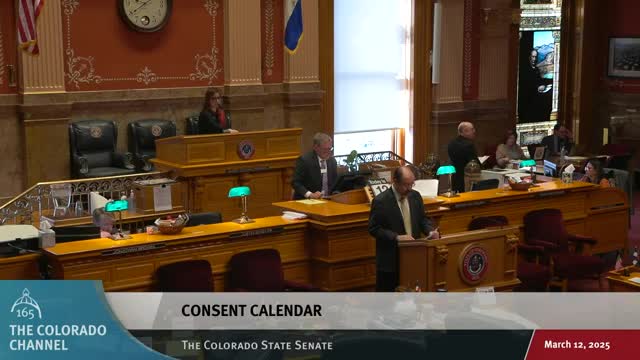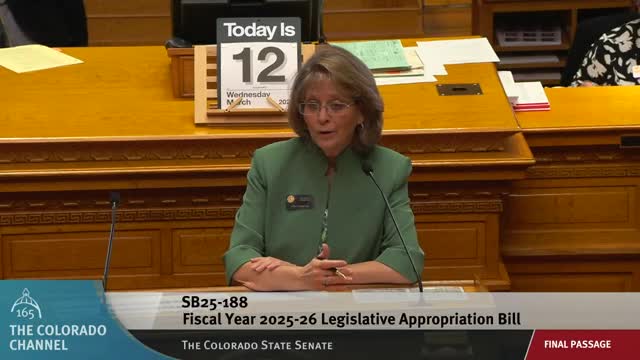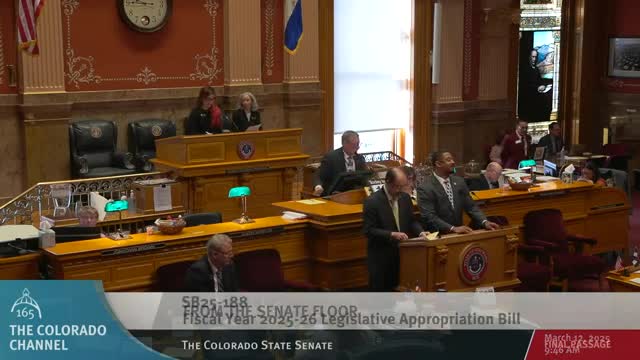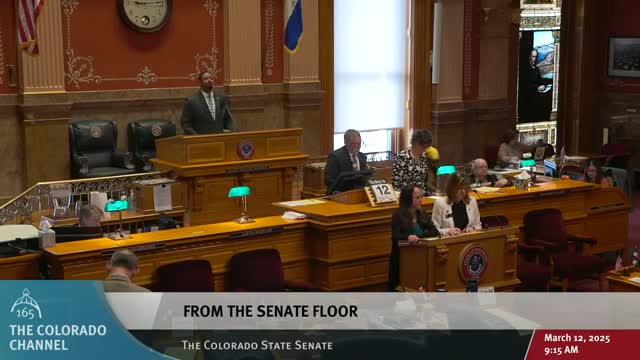Article not found
This article is no longer available. But don't worry—we've gathered other articles that discuss the same topic.

Votes at a glance: bills the Colorado Senate passed March 12, 2025

Senate pauses several interim committees, restores some by amendment and preserves youth advisory meetings without drafting privileges

Senate approves legislative department budget after heated debate over reserves and TABOR limits

